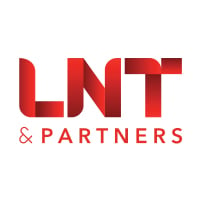
Head of legal | BW Industrial Development



Hao Tran
Head of legal | BW Industrial Development
Team Size: 11
What are the most significant cases, projects, or transactions you have worked on in the past year?
2024 was a year of recalibration for us, shaped by global economic headwinds and shifts in Vietnam’s political landscape. Unlike previous years, we had fewer high-profile deals. Instead, our focus shifted toward strengthening internal capabilities and enhancing operational resilience.
We invested in refining and reinforcing our contract templates, integrating AI tools into our daily work, and developing timely legal alerts to support compliance and business continuity. This proactive approach has allowed the company to operate smoothly while mitigating exposure to potential risks.
Training was another key priority. We conducted targeted sessions for our leasing, investment, and business development teams, covering negotiation skills, deal structuring, and early identification of legal risks. These sessions have improved cross-functional awareness and deal-readiness across the organisation.
On the transactional side, we successfully navigated regulatory changes affecting land use rights—anticipating procedural bottlenecks, adjusting project timelines, and engaging consistently with government authorities to avoid material delays. We also restructured our standard transaction documentation to align more closely with international investor expectations while ensuring compliance with Vietnam’s legal framework. This has reduced negotiation friction, improved execution speed, and strengthened our credibility in cross-border transactions.
How do you handle managing legal issues during instability or crisis?
My approach to legal management during periods of instability combines proactive risk mapping, scenario planning, and clear narrative control.
We create decision trees that outline both legal and commercial risks under different crisis scenarios. We maintain pre-negotiated alternatives with key stakeholders, enabling rapid decision-making without compromising legal safeguards. Finally, we ensure internal and external communications are consistent, reducing reputational risk—which often amplifies legal risk—during crises. These principles are applied consistently, whether managing contracts with vendors and contractors or working with tenants and investors.
What does being strategic mean to you?
Being strategic as a general counsel means thinking in deal timelines rather than purely legal timelines. It’s about aligning legal milestones with business inflection points, ensuring that legal work not only prevents loss but also creates value. This requires understanding commercial drivers as deeply as the CEO or CFO and structuring solutions that keep the business ahead of both competitors and regulators.
What are the most important attributes for a modern in-house counsel to possess?
A modern in-house counsel must integrate transactional precision, regulatory fluency, and narrative intelligence—the ability to shape how deals, risks, and corporate positions are perceived by stakeholders. In today’s environment, a lawyer who can draft an airtight contract but cannot influence the deal story is only partially equipped for the role.
In your opinion, what are the trends to watch in the next year?
I am closely monitoring regulatory developments, evolving U.S. tariff policies, and shifts in cross-border investment structures. Vietnam is entering a phase where investor requirements increasingly influence not only corporate governance but also the feasibility of deals. Transactional lawyers who can structure agreements that satisfy both financial imperatives and global supply chain criteria will hold a clear competitive advantage.
General counsel and CCO, APAC | BW Industrial Development
Head of legal | BW Industrial Development
Head of legal | BW Industrial Development